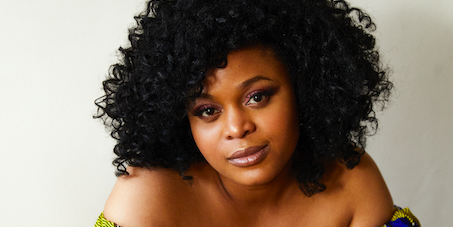Gbemisola Ikumelo: why I spoke out against racism in theatre

There was never a question that I would do anything other than tell stories in some way. I was writing musicals for my school aged 13, I'd graduated to angsty performance poetry by 14 and by the time I was 15, I'd even been accepted into the prestigious National Youth Theatre. Drama was a lifeline for me. Yet a few months ago, I had resigned myself to the idea that my theatre career was over - at least for the foreseeable future - and it wasn't because of lockdown.
I had publicly called out a theatre for racism – something that I had spent years trying not to do. In fact, I’d spent my entire working life cultivating a tribe of go-to Black artists I could privately lean on, so thatI didn’t have to challenge anyone openly. Why? Because I’m not a freedom fighter. I’m a storyteller, and I don’t expect to tell the hand that feeds me that it’s racist while still expecting to work.
So, over the years, I have learnt to pick my battles. Yes, people will randomly touch my hair without asking. I will often be the only Black person in theatre spaces. Nude-coloured theatre mics will rarely be my shade of nude. Hair and make-up departments will treat my hair as if it’s a problem, rather than a part of the show. Directors will ask me to sound more ‘south London’ or ‘street’ when I know this means ‘more Black’. That’s OK. Pick your battles.
But we all have these defining moments that cause us to reflect on everything that has come before; while performing in a theatre just outside London three years ago, I had mine.
Maybe it was because the aggressions were so relentless, the inappropriate jokes were made so often, and I’d been here too many times before, but I decided the only way to get through the experience was to be silent. Every day, I would transform on stage. I did my job loudly, but for the rest of the time, I kept to myself.
That was until the executive director approached me in my dressing-room and said the words that, for me, would change everything: "Gbemi, could you be nicer?" It was a kick in the teeth because I was doing everything not to come across as an angry stereotype; still, they had made up their mind about who I was, and whether I was quiet or loud made no difference. All the notions of picking my battles over the years didn't matter because as a Black woman, even my silence was considered aggressive and not nice. Even my silence was weaponised.
I moved on from the job. I learnt a lot from it – mostly, that comedy is healing. I started filming the first season of the BBC show Famalam and a lot of my pain became sketches. I was beginning to find my voice again.
Then a police officer knelt on George Floyd’s neck, and among protests and anger, theatre also started to speak out. I was seeing statements on social media condemning racism. That very same theatre I had worked at tweeted its own statement.
I knew it was time to stop being silent. In this moment, I felt an overwhelming sense of responsibility to speak truth, even if it wasn’t nice. So I did. I tweeted about my experience of racial aggression during my time at this theatre through trembling hands and tears, and then I went to sleep resigning myself to the idea that my career might be over.
The next day, I woke up to the announcement that I had received two Bafta nominations.
Now, I wholeheartedly believe in Providence, and this moment felt so profoundly full of it that it got me thinking about the recent state of our country and the arts therein. It may seem as though theatre has gone to sleep. But it will wake up, and I believe that when it does, it will be with even more life, more truth and eventually more audiences.
Theatre will be at the centre of the healing this country needs. But first, it has some healing of its own to do. When it comes back, it cannot be the same institution. It must listen to the voices of the freedom fighters and the story-tellers and the beautiful tribe of Black artists who are speaking their truth.
In need of some at-home inspiration? Sign up to our free weekly newsletter for skincare and self-care, the latest cultural hits to read and download, and the little luxuries that make staying in so much more satisfying.
Plus, sign up here to get Harper’s Bazaar magazine delivered straight to your door.
You Might Also Like

